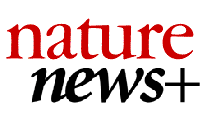

27 June 1999
It takes two to tango
An essential element in rebuilding public trust in science is greater involvement of 'stakeholders' in decisions about the directions in which research develops
It is almost thirty years since one of Britain's most prominent and respected politicians, Shirley Williams, wrote a major article for The Times declaring that for scientists, "the party is over". Williams was referring to the fact that for much of the two decades that followed the Second World War, the high esteem in which scientists were held by society meant that they could virtually write their own cheque when it came to seeking public support for their work. But, she warned, growing public unease with the fruits of science had taken its toll; in future, scientists would have to tighten their belts and be prepared to justify their work in a way that few had felt the need to do previously.
Has science absorbed the message? Or was Williams wrong in her analysis? If one of the lessons was - and is - that science should listen more closely to the demands that are made on it, then one of the main responsibilities of those attending the World Conference on Science is to develop mechanisms to allow this to happen in an effective way. Establishing a two-way communication between science and its 'public' in the widest sense is one of the essential ingredients of the new 'social contract' that is much talked about in conference documents.
But establishing a dialogue is difficult if one of the partners is absent. Several delegates to the meeting have pointed out that there is a relative lack of participants either from science's user communities - in particular, private industry - or from those such as environmentalists whose critical voice on scientific issues, while often grating on the ears of researchers, nevertheless finds a frequent echo in the complaints of the general public. (see 'Putting science in its proper place', 27 June 1999).
Unesco officials claim, with some justification, that the need for the direct involvement of those in either of these two camps is moderated by the fact that their views find frequent expression in the conference documents. Others point out that the conference has been intended to be one largely run by and for scientists - hence the prominent role of the International Council for Science (ICSU). While a number of individual delegations have seen fit to include individuals representing a greater divergence of views than those found on the official platform.
But it would be unfortunate if the impression was left that perhaps the most significant meeting of scientists and science policy makers for several decades felt that critical decisions about the way forward for science can be decided without the closer involvement of the complete range of 'stakeholders' who have an interest in the outcome of this debate.
Sir Robert May, the UK chief scientist, pointed out in an article published in this newsheet yesterday (see 'Rebuilding public trust in science advice', 24 June 1999))that new mechanisms need to be developed through which scientists can regain the public trust that has been so badly battered in recent years. One critical way of achieving this is to open up the type of debate currently taking place in Budapest to a wider range of public discourse.
![]() Nature © Macmillan Publishers Ltd 1999 Registered No. 785998 England.
Nature © Macmillan Publishers Ltd 1999 Registered No. 785998 England.